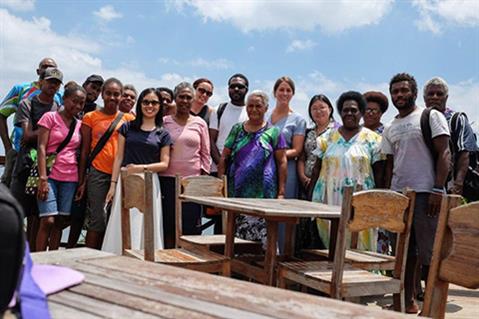PORT VILA - Intake of more than five grams of salt per day can lead to high blood pressure, heart attack and stroke. WHO and the George Institute for Global Health, WHO Collaborating Centre on Population Salt Reduction, have been working together in Vanuatu and other countries, on salt intake surveys and supporting actions to reduce salt content in food products.
Salt reduction is a key action in the Western Pacific Regional Action Plan for Noncommunicable Diseases (2014–2020) and preventing and controlling noncommunicable diseases (NCDs) is a key part of Sustainable Development Goal 3 on ensuring healthy lives.
In Vanuatu, the first salt intake survey in 2017 showed that on average, participants consumed more than seven grams of salt per day with 84% of participants consuming greater than the WHO recommended salt intake. "While the survey is not representative of the whole population, it provides a snapshot of eating habits of part of the population" said Dr Jacob Kool, Country Liaison Officer in Vanuatu.
Men were found to consume more salt than women and there was no difference between participants living in rural compared to urban areas. Most participants reported knowing salt was harmful to their health, but still adding it during food preparation. The survey results will be used to raise awareness, and influence policy and industry to reduce the salt content in food.
The WHO collaborating centre worked with the National Statistics Office and the Ministry of Health (MOH), to run a five-day training in September 2016 on salt reduction for MOH staff and field workers. Participants learnt how to conduct the survey to assess dietary salt consumption patterns; including conducting household listing; collecting 24-hour and spot urine; obtaining information on knowledge, attitudes and behaviour relating to salt; carrying out a dietary survey to identify the main sources of salt in the diet; and conducting a shop survey to gather data on salt levels in food. The survey was then carried out between October 2016 and February 2017.
This salt reduction work in Vanuatu, builds on salt intake surveys conducted with the support of the George Institute in other countries, such as Fiji, Mongolia and Samoa. The Institute is also starting to support salt intake surveys across other WHO regions.

